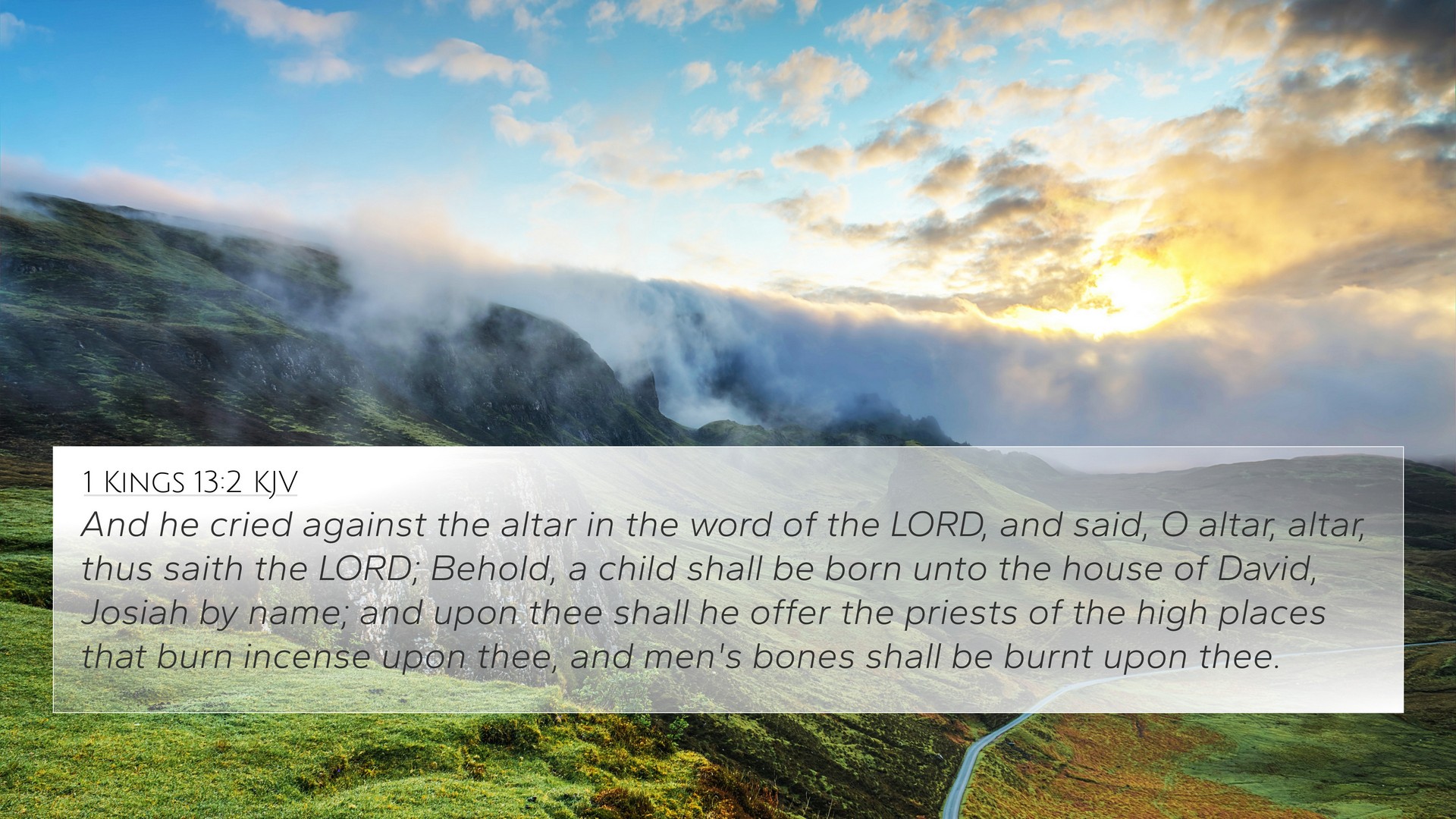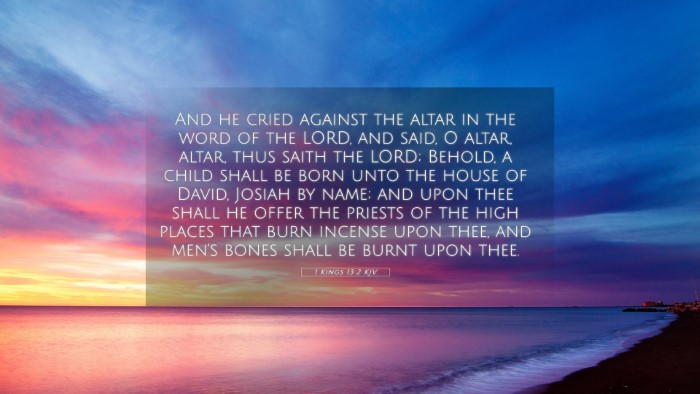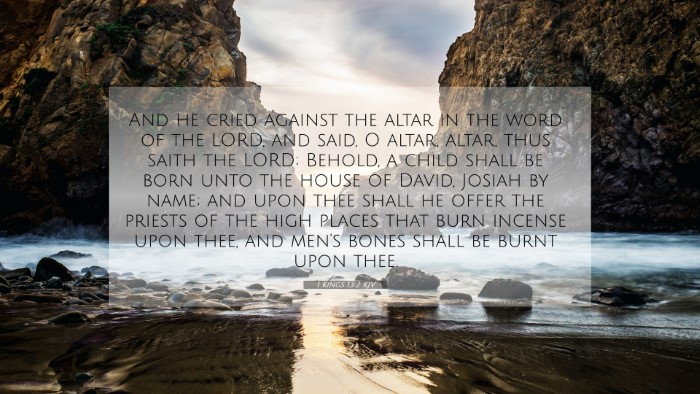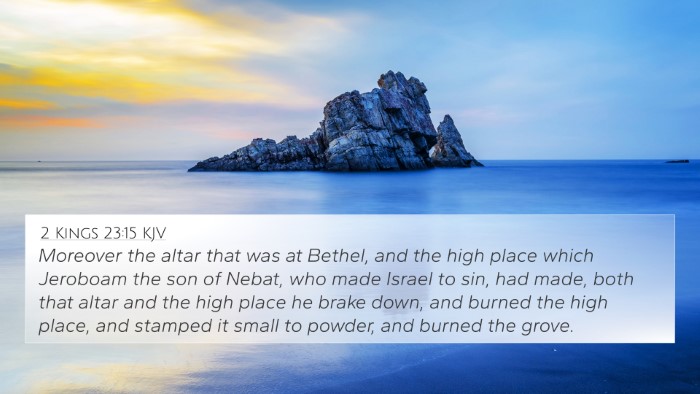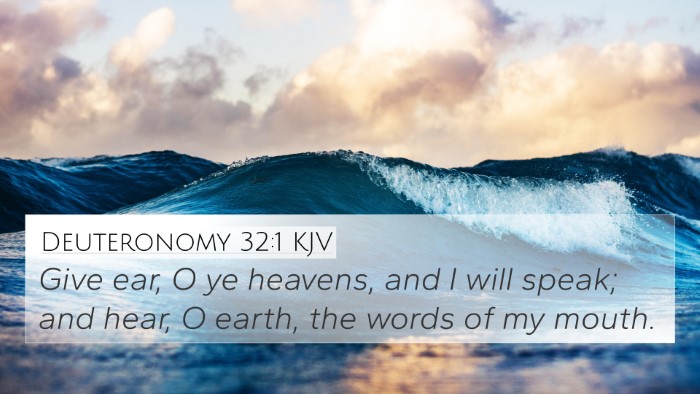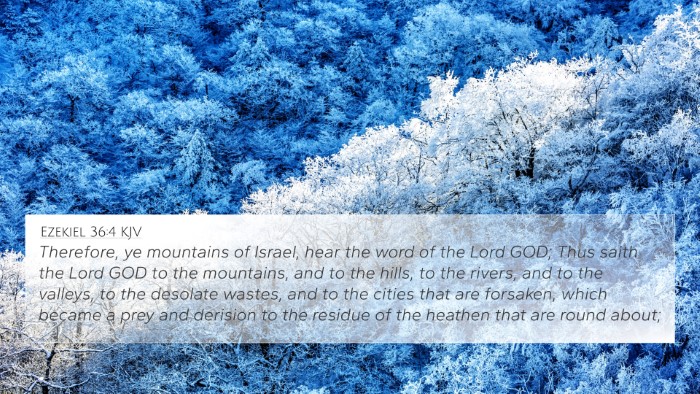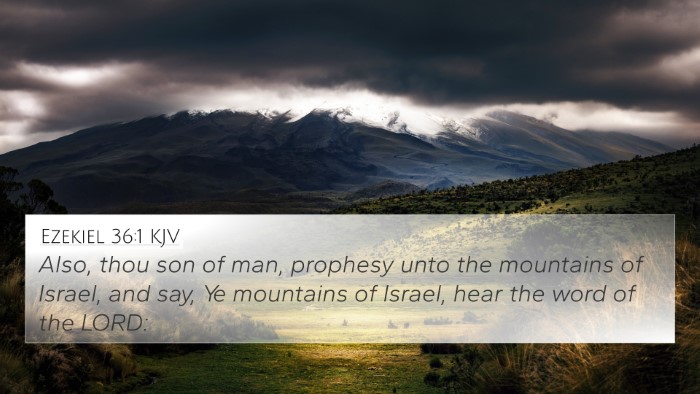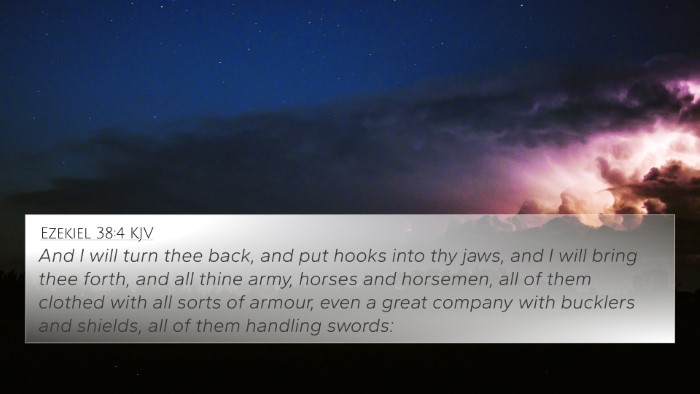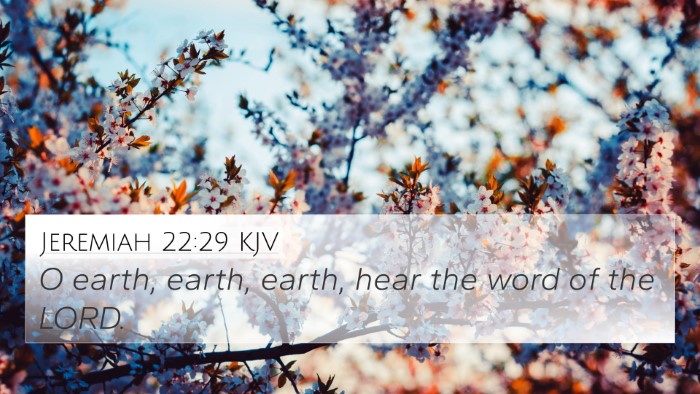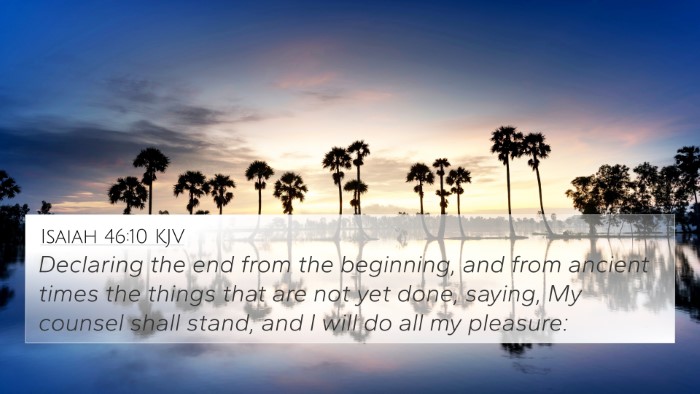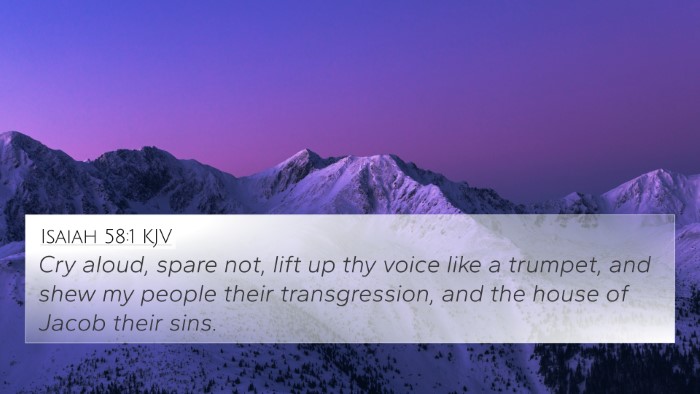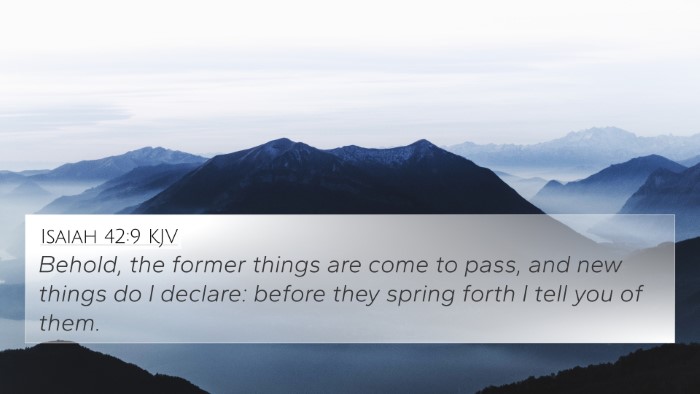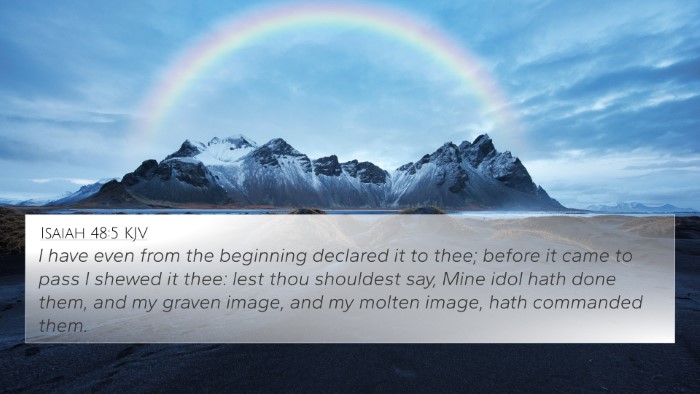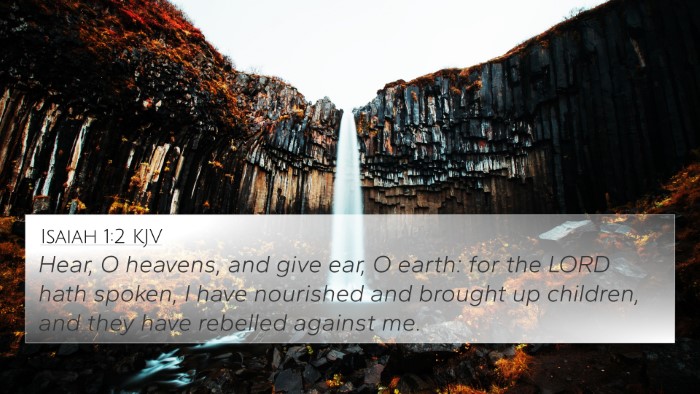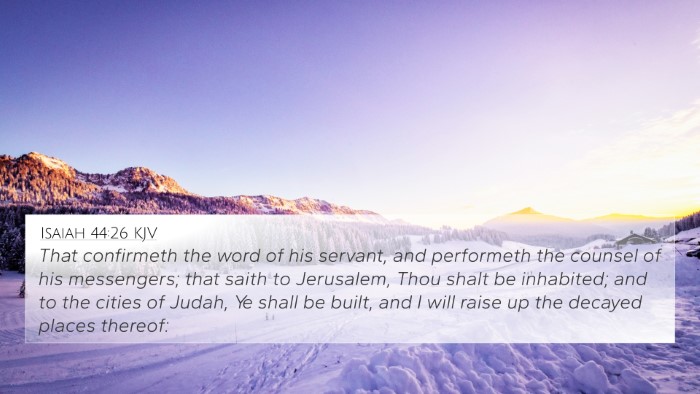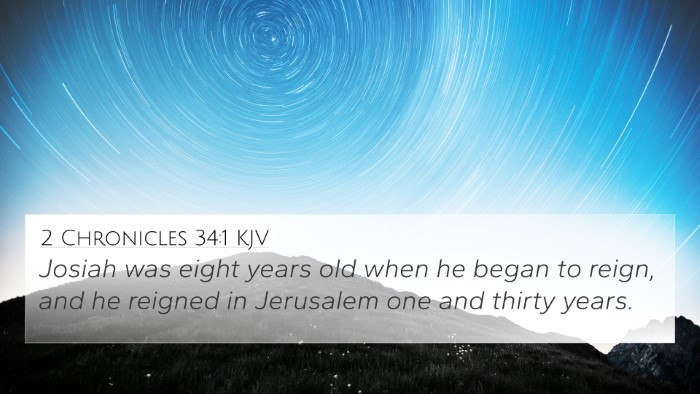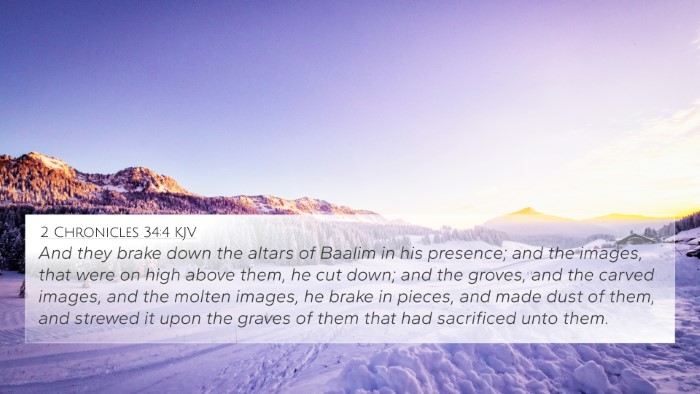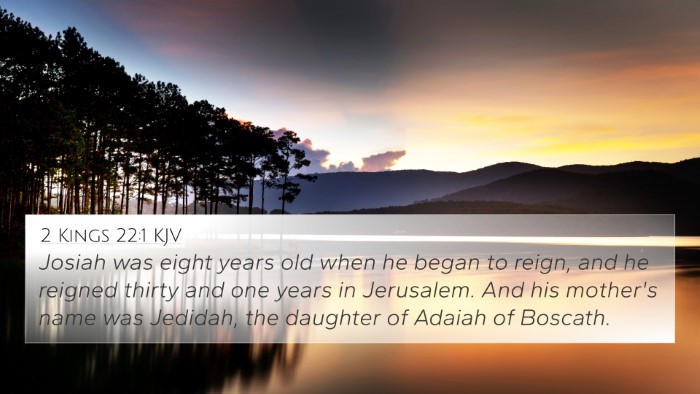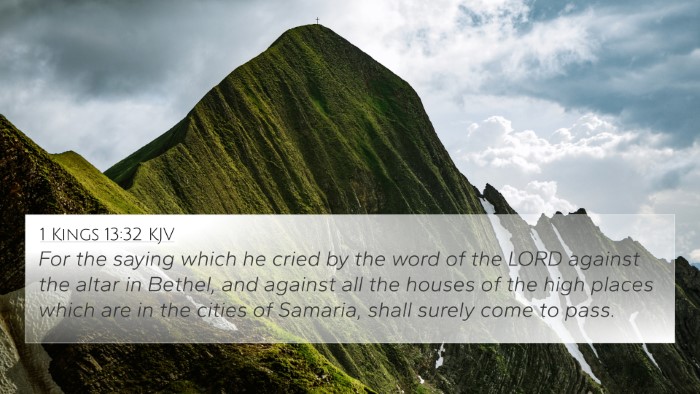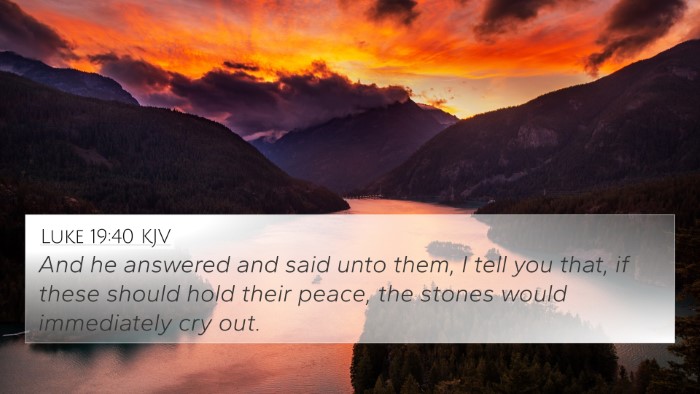Understanding 1 Kings 13:2
1 Kings 13:2 states: "And he cried against the altar in the word of the LORD, and said, O altar, altar, thus saith the LORD; Behold, a child shall be born unto the house of David, Josiah by name; and upon thee shall he offer the priests of the high places that burn incense upon thee, and men's bones shall be burnt upon thee."
This verse is significant as it is a prophetic proclamation made by an unnamed prophet coming from Judah, directed toward a specific altar in Bethel. The core message here is one of divine judgment against idolatrous practices initiated by King Jeroboam.
Prophetic Significance
Commentary by Matthew Henry emphasizes the prophetic nature of this declaration, noting that the mention of King Josiah represents a future king who would defile and destroy the altars of false worship. This action illustrates God's sovereignty and His ultimate plans for reform and restoration within His people.
Symbolism of the Altar
Adam Clarke notes the altar symbolizes both the place of worship and the misaligned devotion that characterizes the northern kingdom. The prophecy reveals not only the condemnation of idolatry but also the hope of future redemption through Josiah, who would lead reforms and bring the people back to true worship.
Divine Judgment and Mercy
Albert Barnes elaborates on the dual themes of judgment and mercy inherent in this verse. The proclamation serves as a foreshadowing of God’s judgment upon Jeroboam's sons and the priests who participated in the unholy sacraments conducted on the altar.
The narrative here communicates that while God is pronouncing judgment, there is an assurance of future hope in the coming Josiah. This encapsulates a recurring theme within scripture regarding the tension between divine justice and gracious redemption.
Cross-Referencing Biblical Texts
To fully grasp the profound implications of 1 Kings 13:2, it is essential to explore how it connects with other scriptures through Bible verse cross-references. Below are several key references:
- 2 Kings 23:15-20 - Details Josiah's reforms including the destruction of the altar at Bethel.
- 1 Kings 12:28-30 - Records Jeroboam's establishment of alternate places of worship leading to idolatry.
- 2 Kings 21:16 - Highlights the corruption and shedding of innocent blood during Manasseh’s reign.
- 2 Chronicles 34:1-7 - Chronicles Josiah’s righteous reforms and zealous actions against idolatry.
- Jeremiah 1:1-3 - Connects back to the prophetic lineage, relevant to the theme of God's ongoing communication through prophets.
- Isaiah 44:25-28 - Discusses God’s sovereignty in bringing to pass prophetic declarations.
- Zebaniah 1:4 - Mentions idolatry common among nations and includes God's denunciations of such practices.
Through these connections, we can see the importance of inter-Biblical dialogue and how themes of judgment, prophecy, and repentance interact throughout the biblical narrative.
Thematic Connections
1 Kings 13:2 also encourages a comparative Bible verse analysis revealing connections between the prophetic working of God in the Old Testament and His continued guidance in the New Testament context. The themes of idolatry, judgment, and hope carry over, manifesting in the teachings of Jesus and the writings of the Apostles that engage with these earlier motifs.
Conclusion
To summarize, 1 Kings 13:2 serves as a profound example of God's intervention in history through prophetic voices, outlining both judgment for sin and the promise of recovery through righteous leadership. Engaging with this verse through various Bible reference resources, such as concordances and thematic studies, enhances our understanding of its depth and relevance.
As you delve into the Bible cross-reference guide, consider how this verse fits into the larger narrative of scripture and what it reveals about God’s character and redemptive plans for humanity.
